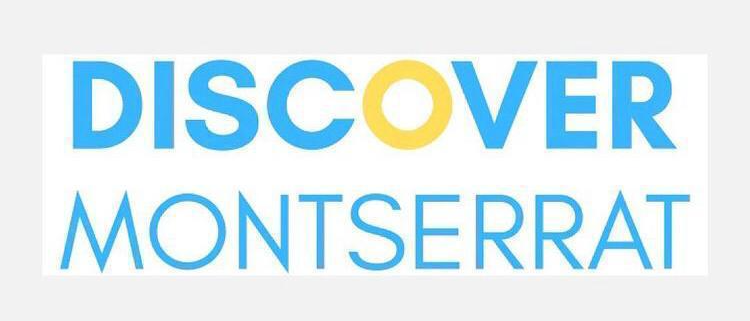Surviving kidney disease
DPI, Guyana, Tuesday, April 1, 2019
Chronic Kidney Disease need not be a death sentence, even for persons who cannot afford it.
That’s because treatment and transplants, which attract high fees at private institutions, are available in Guyana free of cost at the Georgetown Public Hospital Corporation (GPHC).
The Ministry of Public Health also provides financial assistance to patients who might have incurred additional expenses during treatment.
Colvin Luthers, age 46, is one of those who owes his survival to these services.
Luthers, who had worked as an Electronic Technician, in Montserrat for more than 15 years, was diagnosed with CKD in 2015. After the initial diagnosis, he came to Guyana to confirm his condition and access a more modern and available health service.

Colvin Luthers, Chronic Kidney Disease Patient who is currently on dialysis.
“Dialysis has changed my life drastically. I have been back in Guyana for about three years now… Montserrat does not have the medical assistance to deal with CKD patients so I was brought back to Guyana for a second opinion, third opinion and it was confirmed and ever since then, I have been on dialysis.”
The challenges he experienced as a Chronic Kidney Disease patient were many. In spite of it all, he persevered, sticking to his treatment schedules, honouring appointments and ensuring that his health remains his priority. He spoke of the availability of dialysis services at the Georgetown Hospital and explained that persons on dialysis have the option of undergoing kidney transplant surgery.
“Fighting kidney disease, you have to be physically and mentally strong, you have to want to live… it’s not an easy battle. There is a nickname you call kidney patients, you call them warriors. From a physical standpoint, there are scars, lots of scars… My independence is gone, when I left Montserrat, I pretty much left everything, everything just went down the drain actually and since I came back home, I am heavily and totally dependent on my family.”
Luthers remains on dialysis until a suitable donor is sourced for him to have a kidney transplant done. “Transplant is the better option for kidney patients but while that is happening there is a lack of donors, and I think people need to be aware more about the disease, more about donorship and let them know that donating a kidney won’t affect them in any way.”
Summing up his experience, he emphasised that family support is key to surviving the whole ordeal. He also noted that the work of nurses and doctors in this particular area is critical.
“Kidney patients develop a relationship with their doctor because everybody needs different care. There is no two same dialysis patients, everybody is an individual when it comes to kidney patients, and I know sometimes the doctors go above and beyond to assist their patients.”
18-year-old Abigail Mars has her own story to tell.
“I started showing symptoms of the nephrotic syndrome at the age of five; I would have had for example swelling of my eyes… After consulting with doctors, I was told it was an allergy and pills were prescribed. They worked for a while but by age 12 it had gotten worse, and when I went to the Georgetown Hospital it was there that I was diagnosed with Nephrotic Syndrome. And at 15, in 2015, I was diagnosed with stage five kidney disease and I was placed on dialysis.”
Abigail reflected that she battled depression while trying to balance her academic studies while seeking treatment for her illness.

Abigail Mars, Post Kidney Transplant patient.
“It was really depressing because at 12, I was preparing for the National Grade Six Assessment, and it was really hard to manage the disease and study. Nevertheless, I did and thank God for that. It was really a tough journey because nobody wants to know that they are diagnosed with Kidney Disease at such a young age.”
Her depression also stemmed from people staring at her in public. “I never wanted to go outside because of the swelling… whenever I went out, everyone would stare at my puffy face and swollen feet and probably wondered why I looked the way I did. It affected my social life.”
As Abigail grew, she often was in and out of the hospital. By age 15 she was a hemodialysis patient. The former St. Joseph High School student spent a lot of time receiving treatment when she should have been preparing for the National Grade Nine Examination and onward to Caribbean Secondary Examinations (CSEC).
Eventually, the doctors at the Georgetown Public Hospital’s department of Nephrology and Kidney Transplant advised Abigail and her mother on the possibility of having a transplant done. After necessary tests were done on her mom, the green light was given to perform the surgery.
“I actually did not want to go ahead with the surgery because I was scared for myself and also for my mother because she was a donor. I was thinking of all the possible complications.”
The surgery was successful, and Abigail is happy that she can now make a meaningful contribution to society. She finally had the opportunity to sit CSEC examinations in 2018 with passes in 12 subject areas. She is currently pursuing studies in Business Management and hopes to become an entrepreneur.
The Post Kidney Transplant patient advised that persons must “stay hydrated, drink a lot of water, at least eight glasses of water a day to keep your body hydrated. It helps with your kidney functions and keeping it in order. Even if you believe you are healthy, you should still check your kidney functions from time to time because this can happen to anyone.”
The Ministry of Public Health is also exploring options of having treatment services more accessible to kidney disease patients residing out of Georgetown.
At the recent observance of World Kidney Day, on March 14, Minister of Public Health, Volda Lawrence explained that the ministry is looking to establish clinics catering to kidney disease patients in various regions.
“Over the last year and a half, I have been looking at ways in which we can really help our patients. Last year, the ministry placed an ad in the newspapers for expressions of interest so we can work with private partners to offer dialysis; not only at the GPHC but to have walk-in clinics in Regions Two, Three, Six and Ten.”
Delicia Haynes.
Images: Department of Public Information and Ackeem Thomas.




